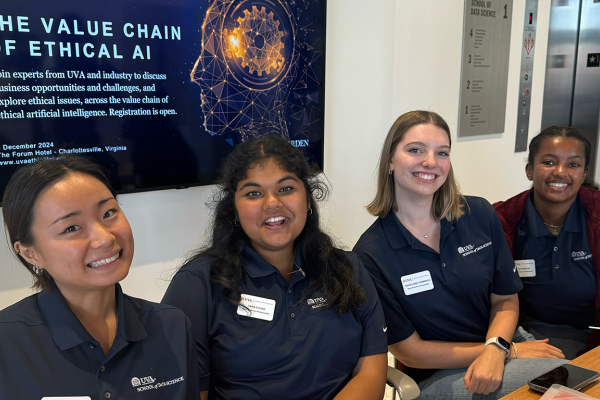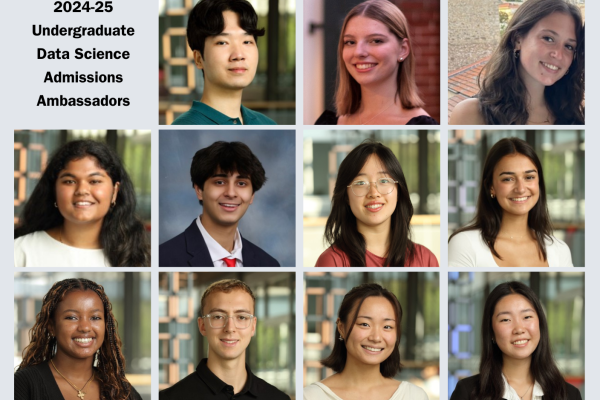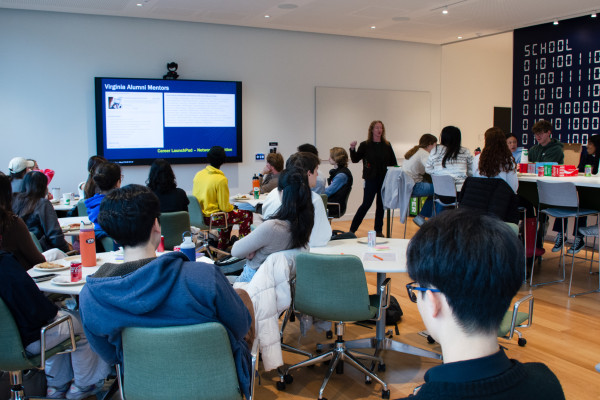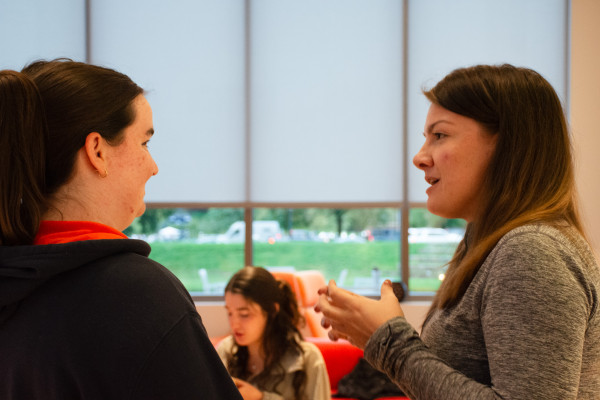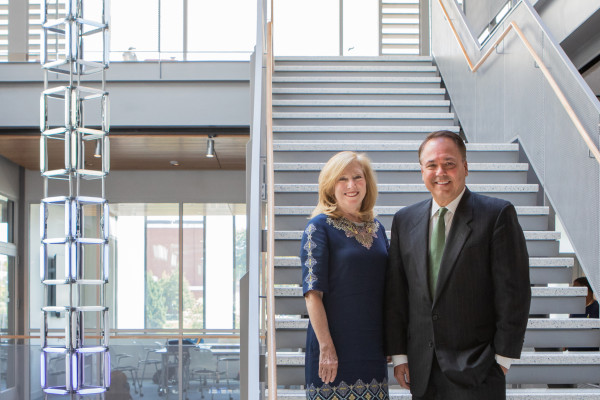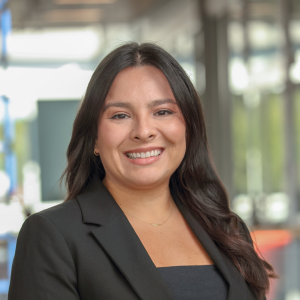
Balancing Passions and Priorities: Insights on Double Majoring

Rachel Seo, B.S. in Data Science Ambassador
Major: Data Science
Expected Graduation Year: 2027
Hometown: Clifton, Virginia
Rachel Seo has explored the possibilities and challenges of double majoring while staying committed to her passion for data science. Below, she shares her experiences and decision-making process, offering valuable insights for students considering a similar path.
From her initial interest in media studies to her strategic decision to focus on data science with specialized concentrations, Rachel highlights how she balances academic demands, co-curricular engagement, and career aspirations.
Q: Why did you initially consider double majoring, and were you influenced by anyone, such as peers, family, or professors? Which major were you considering declaring?
Initially, I considered double majoring in media studies because I was interested in studying media use, specifically in the intersection between marketing and data science. Another reason I considered double majoring was because I wanted to get the most out of my undergraduate experience at the University of Virginia (UVA).
This has not changed; however, I decided that double majoring is not the only path that would allow me to learn more about media, its effects, and intersectional research with data science. I felt a little pressure to consider double majoring because many of my peers are double majoring.
Q: How have social activities, co-curricular engagement, and the academic demands of your current major been impacted by the possibility of adding a second major, and what strategies or techniques have helped you manage these challenges?
Overall, balancing social activities, co-curricular engagement, and the academic demands of the B.S. in Data Science (BSDS) has been a rewarding experience.
At the beginning of the school year, I needed time to adjust to the project-based structure of my data science courses. However, once I learned how to manage my time effectively across my various classes, I found that the academic workload from my data science major did not require more time than any other course.
By achieving balance, I realized that I could manage the demands of a double major, though I ultimately decided it was not necessary.
Some strategies that have helped me maintain a balance include:
- Keeping track of events hosted by the School of Data Science and inviting friends from my cohort to join me.
- Scheduling regular office hours each week to seek help and reinforce my understanding.
- Using a detailed calendar to track project timelines, due dates, and exam study schedules. Staying organized has been essential.
Q: What assumptions did you make about double majoring that have turned out to be true or false?
I had assumed that double majoring would be an advantage in the job market, but now I don’t think this has turned out to be true or false. I don’t think it’s a disadvantage per se, but I’ve also found that I can’t quite categorize it as an advantage.
Q: How do you view double majoring as an advantage (or not) in the job market, and how might it influence employability and career opportunities?
At first, I saw double majoring as an advantage in the job market, and primarily why I thought about double majoring in the first place. I thought a double major would open up more opportunities for employment/career options, especially if I had chosen to double major in an unrelated subject to data science. However, after seeing that data science is an applied STEM major, and applicable to a multitude of other fields, I believe double majoring can be seen as a supplement, but not a necessity.
Q: Where do you see yourself after graduation, and how do you envision your major to help you achieve those goal.
After graduation, I hope to work in the sports analytics field, either as a consultant or a researcher. As a data science major, I believe that the programming skills, data visualization techniques, and communication abilities I am gaining through my coursework will be instrumental in helping me pursue this career path. I’m excited about how these skills will enable me to analyze data and tell compelling stories through visualization.
Q: If you are not going to double major, how are you going to deepen your knowledge and skills? Are there any minors you are considering and how do you think those will help?
After a thorough amount of contemplation, I am not going to double major, but I am planning on double concentrating within my major. The School of Data Science is currently planning intersectional concentrations, partnering with different schools within UVA, so I am very excited for those options.
As of now, I plan on concentrating in Analytics and Design, and I believe that diving deeper into these aspects of data science will help me demonstrate greater skills in the visualization and communication of my analyses.
Q: Are there any resources, individuals, or tools at UVA or in the School of Data Science that helped you make your decision?
Our School of Data Science academic advisor, Heather Corley is an awesome resource and an even greater person to talk to about anything. I initially came to her about my worries about double majoring and course conflicts that would arise due to my pursuing a second degree, and she had drawn up all the academic and financial requirements for me to consider. I feel confident in my decision to major solely in data science because I was able to see things from all angles, thanks to Ms. Corley’s advice supplemented with my own research in Career Services and the UVA Student Information System (SIS).
Q: What advice would you give to other students who are considering a double major, based on your own experience and decision-making process?
For students who are considering a double major, I recommend doing your research about the major requirements and making an appointment with your academic advisor to confirm! It’s always great to have a second opinion from someone who isn’t your family or your peers. An advisor can point you to the right people to learn more about a specific major that you’re interested in and draw up all the specifics to help you make your decision.
I also think it’s essential to reflect on why you want to double major. Is it for personal passion and intellectual curiosity, or just for the sake of having two degrees? Being genuinely interested in the subject matter and wanting to deepen your knowledge should be a primary motivator—not just the potential for job opportunities.
